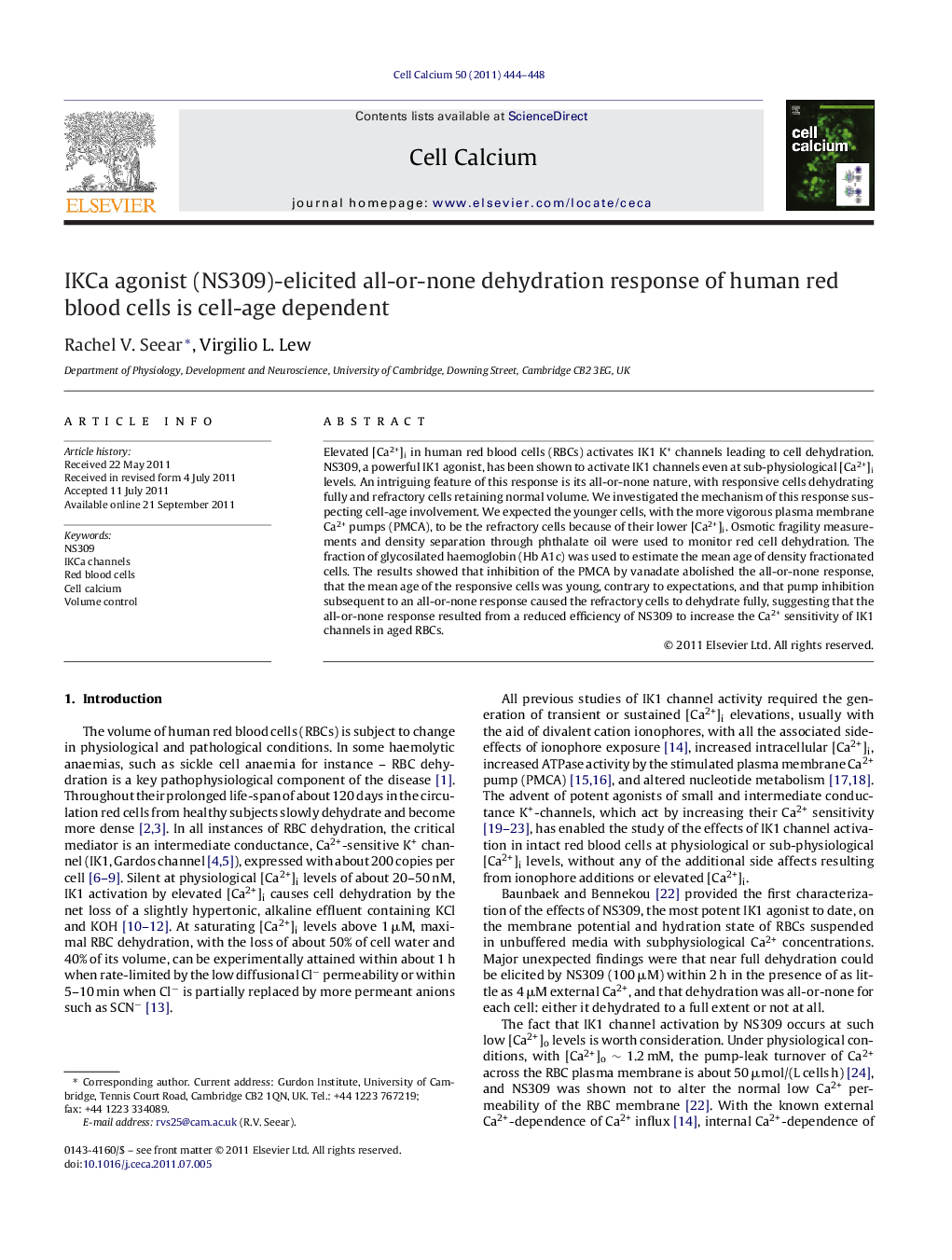| Article ID | Journal | Published Year | Pages | File Type |
|---|---|---|---|---|
| 2166172 | Cell Calcium | 2011 | 5 Pages |
Elevated [Ca2+]i in human red blood cells (RBCs) activates IK1 K+ channels leading to cell dehydration. NS309, a powerful IK1 agonist, has been shown to activate IK1 channels even at sub-physiological [Ca2+]i levels. An intriguing feature of this response is its all-or-none nature, with responsive cells dehydrating fully and refractory cells retaining normal volume. We investigated the mechanism of this response suspecting cell-age involvement. We expected the younger cells, with the more vigorous plasma membrane Ca2+ pumps (PMCA), to be the refractory cells because of their lower [Ca2+]i. Osmotic fragility measurements and density separation through phthalate oil were used to monitor red cell dehydration. The fraction of glycosilated haemoglobin (Hb A1c) was used to estimate the mean age of density fractionated cells. The results showed that inhibition of the PMCA by vanadate abolished the all-or-none response, that the mean age of the responsive cells was young, contrary to expectations, and that pump inhibition subsequent to an all-or-none response caused the refractory cells to dehydrate fully, suggesting that the all-or-none response resulted from a reduced efficiency of NS309 to increase the Ca2+ sensitivity of IK1 channels in aged RBCs.
